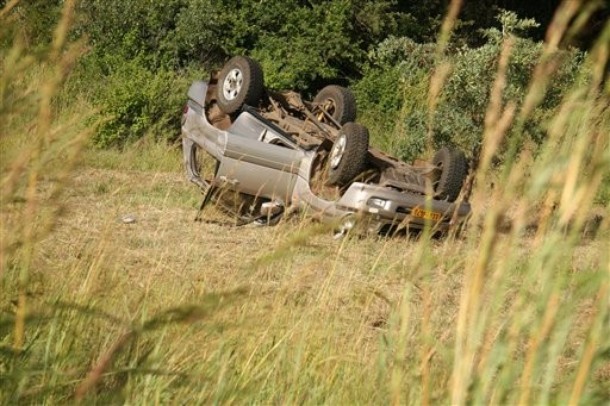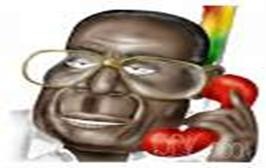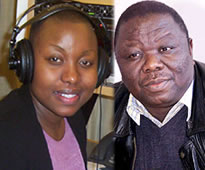sundayopinion by Dennise Kilma
Who is this child next to my window, and what is that in his hand?", I asked; the reply was curt, and to the point: "That's a street kid. He is holding sawdust because he may end up eating it due to hunger."
This brief exchange of words took place between myself (an American exchange student currently studying in South Africa) and a good friend (a Zimbabwean studying at the same university in South Africa). Having been granted a one-week Easter Holiday, the opportunity arose to join my friend, with his family, staying in his house located in a low-density suburb in Harare.
This is an account — the writing intended to be as truthful and open as possible — documenting the perspective of a 20-year-old American traveller — spending seven enigmatic days in Zimbabwe.
Hitch-hiking to Harare (sitting down behind the truck-driver's seat, for 11 hours, seated next to 11 people) was one of the most memorable experiences of my life; the pain and numbness in my buttocks subsided after a couple of hours, and my presence as "the American" was eventually discovered, subsequently employing fruitful conversations about America and Zimbabwe.
The reactions I have received in Africa (having only been here for three and half months), regarding my nationality, can be categorized as two-fold: one is the genuine excitement that an American citizen, coming from a place many Africans would love to travel and see, is in their country; the second reaction being indifference. Everywhere I have travelled, the people's personalities have been colourful, the hospitality impeccable, and the food delicious (sadza and roasted maize being my favourites).
America, containing an economy allowing the average citizen ample leisure commodities (that Americans take for granted e.g. the widespread use of cars, constant electricity, hot water, and a large selection of general commodities), the attitudes, work-ethic, and personalities of the American people are more individualistic, producing a less communal, collectivist society. Individuals in America usually only give if they trust the bargain will be reciprocal; this behaviour restricts social development, furthering the socio-economic gap, as well as promoting the sustenance of ignorance between race and class.
America is doing little to face these issues directly, due to a government, and conservative media (the commonly believed myth that American media is "liberal" needs to be re-examined to a great extent), controlling the socialisation and indoctrination of the typical American's mind; a similar problem exemplified overtly in Zimbabwe.
While American individualism allows for financial prosperity, achievable without garnering knowledge about issues, the world is battling within a global context (e.g. global warming, torturing in international terrorist detention centres, the injustice plaguing neo-liberal markets, etc.), Zimbabwe remains the opposite: the people of Zimbabwe know much about the issues of the world, with a 97% literacy rate. Zimbabweans love to read; unfortunately, financial prosperity in Zimbabwe is lacking to allow such a knowledgeable people a chance to flourish.
While the Zimbabwean government conceals a more accurate approximation of the country's inflation rate (close to 2 200%), economic hardships increasingly become more visible (e.g. the street-child eating sawdust). The hardships slide off the government's policy documents onto the people's faces: full of morose, directness, and exhaustion — occasionally accompanied by hope, shown with a genuine smile, decorated in a spirit of passion and pride.
Aside from the direct, visible, destructive effects of Zimbabwe's economy, the people of Zimbabwe are overwhelmingly impressive human beings; to struggle through hardships, maintaining the capacity to produce a contagious laugh or smile, requires an exemplary level of maturity and hope for a better future. The people of Zimbabwe represent a caste of peace-loving, generous, trustworthy human beings; the threatening feelings caused by shameful actions of petty theft, overt criminality, and standard muggings, are absent amongst the environment in Harare.
It is for this reason that the people of Zimbabwe should be proud, and the government scared. Zimbabweans are starving, and in the grip of hunger. Zimbabweans restrain from the actions of crime, theft, and violence; there is a great desire for the petty criminals in South Africa to learn from fellow peace-loving Zimbabweans, who abstain from crime, using their energy towards a more constructive end.
The combination of suppressive, oppressive, and violent regime in Zimbabwe, coupled with a population of citizens typifying peaceful human beings, equates an unequivocal sense of tension: walking through Harare, I felt the anger the people have towards government; simultaneously, walking through Harare, I felt the love people have towards life.
Such diametrical disposition of opposing forces (i.e. a peace-loving citizenry marching with malevolence against Mugabe's corrupt rule) teaches a lesson to any foreigner willing to empathize with the people of Harare — that lesson being: as human beings, existing in periods of hardship(s), we should be vigilant to express discontent and hatred towards the party responsible, not through crime and violence, but through a constructive work ethic and unity of voice. Zimbabweans understand and embrace a certain work ethic (more than Americans!), rooted deep in Zimbabwean's current plea for a more just, egalitarian society; moreover, the Zimbabwean work ethic exemplifies the fact, that, for some people, nothing is given for free; for those people, whining is an inefficient option — we must accomplish the task at hand, for the betterment of society.
Unable to trade American dollars for the Zim dollar on the official market ($1US equating to $250 Zim), all of my monetary transactions occurred through the black market (operating an exchange rate of $1US to $15 000 Zim); making transactions on the black market was a fresh experience for me; moreover, exchanging currency allowed me to understand how difficult the situation in Zimbabwe truly is: the official market rate currently charges $8 500 Zim for a loaf of white bread, equating to US$25 — this is outrageous; in America, a loaf of white bread is averaging US$0.50. Zimbabwe's black market exemplifies a people exerting pride, constrained by poor government communication and atrocious foreign policy; moreover, Zimbabwe's black market showcases a people controlling their country, managing life and the economic sector where the government is unable (and unwilling) to successfully lead.
Travelling for a week in Zimbabwe, I learned many things: how a people succeed as government fails; how a human being genuinely smiles, disguising their empty stomach; how a culture, passionate about life, burdened by economic hardship, continues with life.
I would now like to thank Zimbabwe's people, for sharing and teaching foundational principles with me, expressing an outlook on life that is notoriously healthy. Zimbabwe: those who know your hardships shed tears; those who read about your life gain inspiration from your stamina, maturity, and exemplariness; those who govern you will soon understand, that no matter how much an oppressive regime may try, history has shown—a people united cannot be broken.
* Denise Kilma is an American student of Political Science and Philosophy at the University of KwaZulu-Natal, Durban, South Africa.
He can be contacted at kpoist1@gmail.com



















